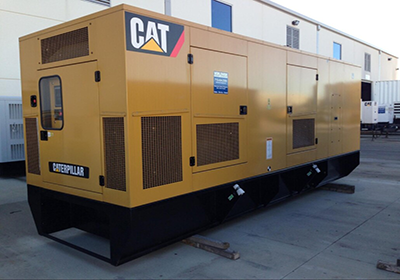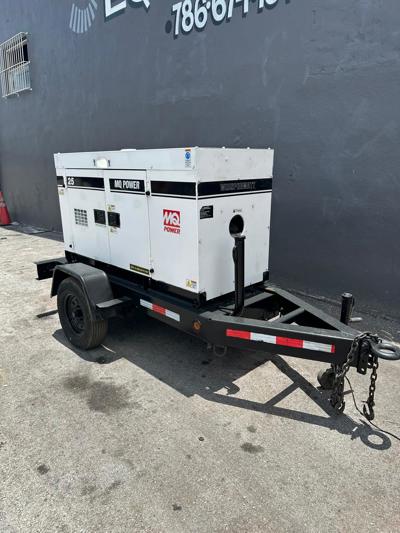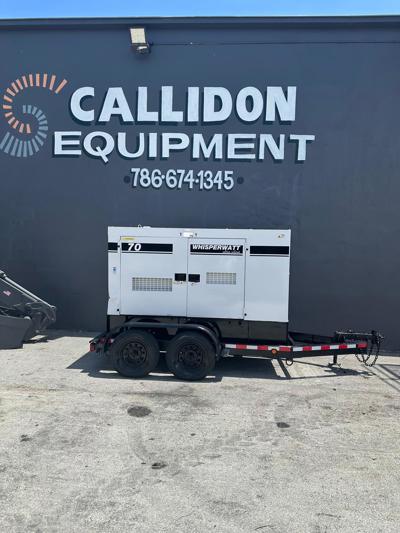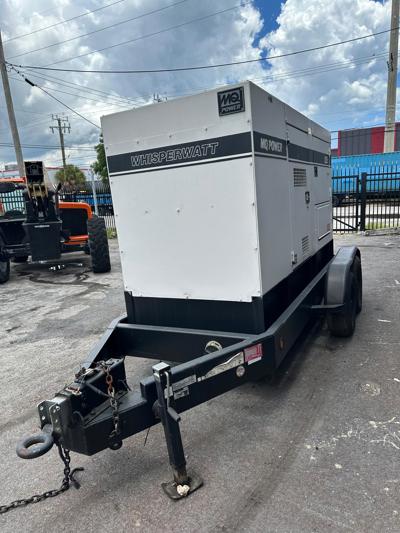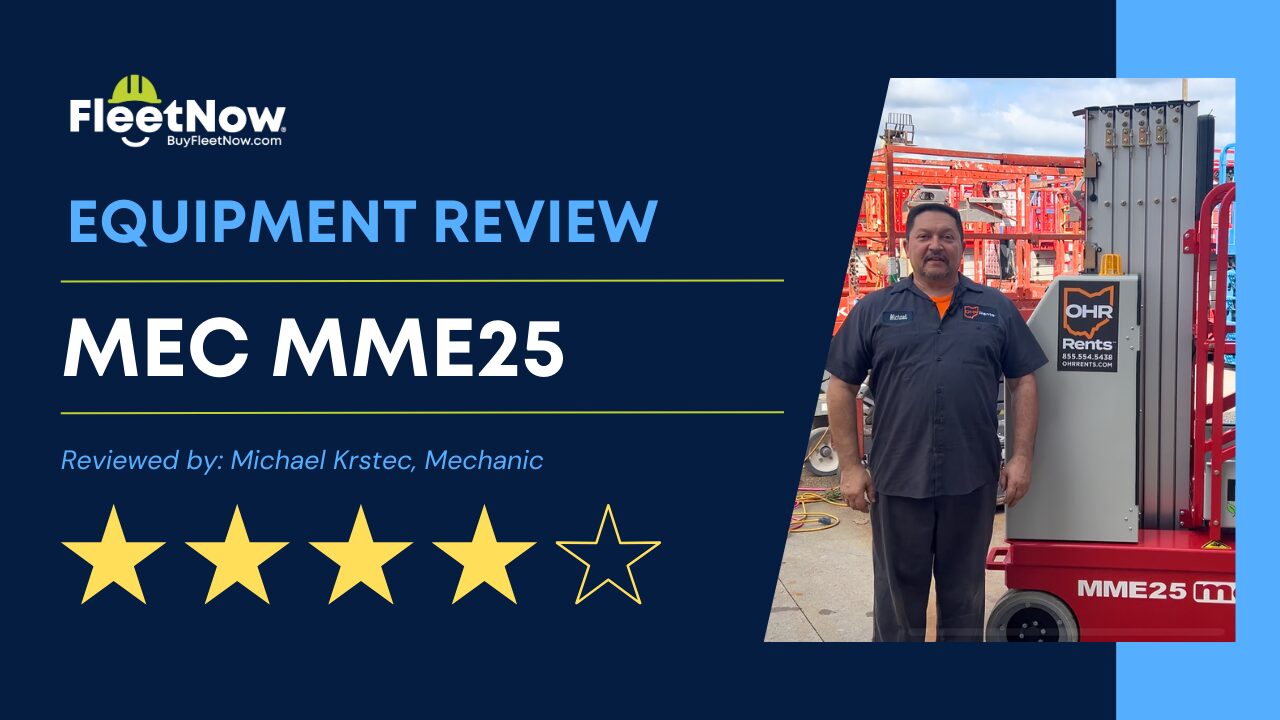What is an Industrial Generator?
An industrial generator is a heavy-duty device designed to provide electrical power in situations where a stable power supply is essential, especially in industrial settings. These generators are typically larger and more robust than residential or portable generators and can produce a significant amount of electricity. They are often used as backup power sources for critical infrastructure such as hospitals, data centers, factories, and construction sites. Industrial generators can be powered by various fuels including diesel, natural gas, propane, or gasoline, depending on the specific requirements of the application.
What Does an Industrial Generator Do?
An industrial generator is essentially a power generation device designed to produce electricity on a large scale, primarily for industrial applications. Here’s what it does:
Power Generation: The primary function of an industrial generator is to produce electrical power. It achieves this by converting mechanical energy into electrical energy through an engine or turbine coupled with an alternator.
Backup Power: Industrial generators serve as backup power sources in situations where the main power supply fails or is unavailable. This ensures continuous operation of critical equipment and processes in industries such as healthcare, manufacturing, telecommunications, and data centers.
Prime Power: In remote locations or areas with unreliable grid power, industrial generators may serve as the primary source of electricity, providing continuous power to support ongoing operations.
Voltage Regulation: Industrial generators typically include voltage regulation systems to maintain a stable output voltage within specified limits, ensuring compatibility with connected equipment and preventing damage from voltage fluctuations.
Should I Buy an Industrial Diesel Generator or an Industrial Electric Generator?
The choice between an industrial diesel generator and an industrial electric generator depends on several factors, including your specific power needs, budget, fuel availability, and operational requirements. Here’s a comparison to help you decide:
Fuel Availability: Diesel generators run on diesel fuel, which is widely available and often stored onsite in bulk tanks. This can be advantageous in remote locations or areas with unreliable access to electricity or other fuel sources. Electric generators, on the other hand, require connection to an external power source, such as the electrical grid or another generator.
Cost: Industrial diesel generators tend to have higher upfront costs compared to electric generators, primarily due to the complexity of their internal combustion engines and associated components. However, diesel fuel may be more cost-effective in the long run compared to purchasing electricity from the grid, depending on local fuel prices and usage patterns.
Maintenance: Diesel generators require regular maintenance, including oil and filter changes, fuel system servicing, and engine inspections, to ensure reliable operation. Electric generators typically have fewer moving parts and may require less maintenance overall, although regular checks of electrical connections and components are still necessary.
Efficiency: Diesel generators are known for their high efficiency and fuel economy, especially under heavy loads or continuous operation. Electric generators may have slightly lower efficiency due to energy losses in the conversion process from fuel to electricity, as well as losses in transmission and distribution.
Environmental Impact: Diesel generators produce emissions during operation, including nitrogen oxides (NOx), particulate matter (PM), and carbon dioxide (CO2). While modern diesel engines are designed to meet stringent emissions standards, they still contribute to air pollution and carbon emissions. Electric generators, if powered by renewable energy sources such as solar or wind, can offer a cleaner and more sustainable alternative with minimal environmental impact.
Ultimately, the choice between an industrial diesel generator and an industrial electric generator depends on your specific requirements, including power needs, budget, fuel availability, and environmental considerations. It’s essential to carefully evaluate these factors and consult with industry experts or generator suppliers to determine the most suitable option for your application.
Where Can I Find Industrial Generators for Sale?
Industrial generators can be bought through online marketplaces like FleetNow, heavy equipment dealers like Herc Rentals and Callidon Equipment, or through specific manufacturers’ websites.
How Much Does It Cost to Ship an Industrial Generator?
In 2023, buyers who used Fleet Up Transport could expect to pay about $4.40 per mile to ship a Generator around 200 miles.
How Long Does an Industrial Generator Last?
As generators have few moving parts, they don’t have many that can wear out over time. Generators do need to be serviced occasionally. As long as they are serviced, they can last for over 40,000 hours.

Shop for Industrial Generators for Sale on BuyFleetNow.com
How Many Hours Does an Industrial Generator Last?
The lifespan of an industrial generator depends on various factors, including the quality of the generator, the maintenance practices followed, the operating conditions, and the specific demands placed on the equipment. Generally, well-maintained industrial generators can last for tens of thousands of hours.
What Is the Difference Between Commercial and Industrial Generators?
Commercial and industrial generators serve similar purposes in providing backup or primary power supply, but they are designed for different types of applications and environments. Industrial generators are typically larger and more powerful, built to handle heavy loads and continuous operation in demanding industrial settings like factories and construction sites. They are constructed with heavy-duty materials and components, offering advanced features such as automatic startup/shutdown, remote monitoring, and multiple fuel options. Moreover, industrial generators must comply with specific regulatory standards for emissions, noise, and safety. In contrast, commercial generators are smaller and more compact, suitable for powering smaller businesses or office buildings. They may have fewer features but still offer essential functionality for backup power supply in commercial settings, with limitations on fuel options and regulatory compliance requirements.
Can an Industrial Generator Power My House?
Yes, an industrial generator can potentially power your house, but there are some important considerations to keep in mind:
Size and Capacity: Industrial generators are typically larger and more powerful than residential generators. Depending on the size of your house and the electrical load you need to support, an industrial generator may be overkill or may not provide enough power. It’s important to ensure that the generator you choose has the capacity to meet your specific requirements.
Installation and Compatibility: Industrial generators may require professional installation and may not be directly compatible with residential electrical systems. You may need to install additional equipment, such as transfer switches and voltage regulators, to ensure safe and efficient operation.
Noise and Emissions: Industrial generators are designed for heavy-duty applications and may produce more noise and emissions compared to residential generators. Depending on your location and local regulations, this could be a concern.
Cost: Industrial generators tend to be more expensive than residential models due to their larger size and higher capacity. You’ll need to consider whether the additional cost is justified based on your power needs and budget.
While it’s technically possible to use an industrial generator to power your house, it’s essential to carefully evaluate your specific requirements and consult with a professional to determine the most suitable solution for your needs. In many cases, a residential or commercial-grade generator may be a more practical and cost-effective option for powering a home.
Video: Multiquip Power WhisperWatt Generators
Recent Equipment News
MEC MME25 Review: Specs, Features & Industry Perspective
MEC MME25 Review: Specs, Features & Industry [...]
Construction Equipment Trends 2025: Inside Q1–Q2 Demand & What It Means for You
Table of Contents Top 10 Categories Q1 vs [...]
FleetNow Announces Elijah Dollarhide as 2025 Construct Your Future Scholarship Winner
FleetNow Announces Elijah Dollarhide as Construct Your Future Scholarship [...]

